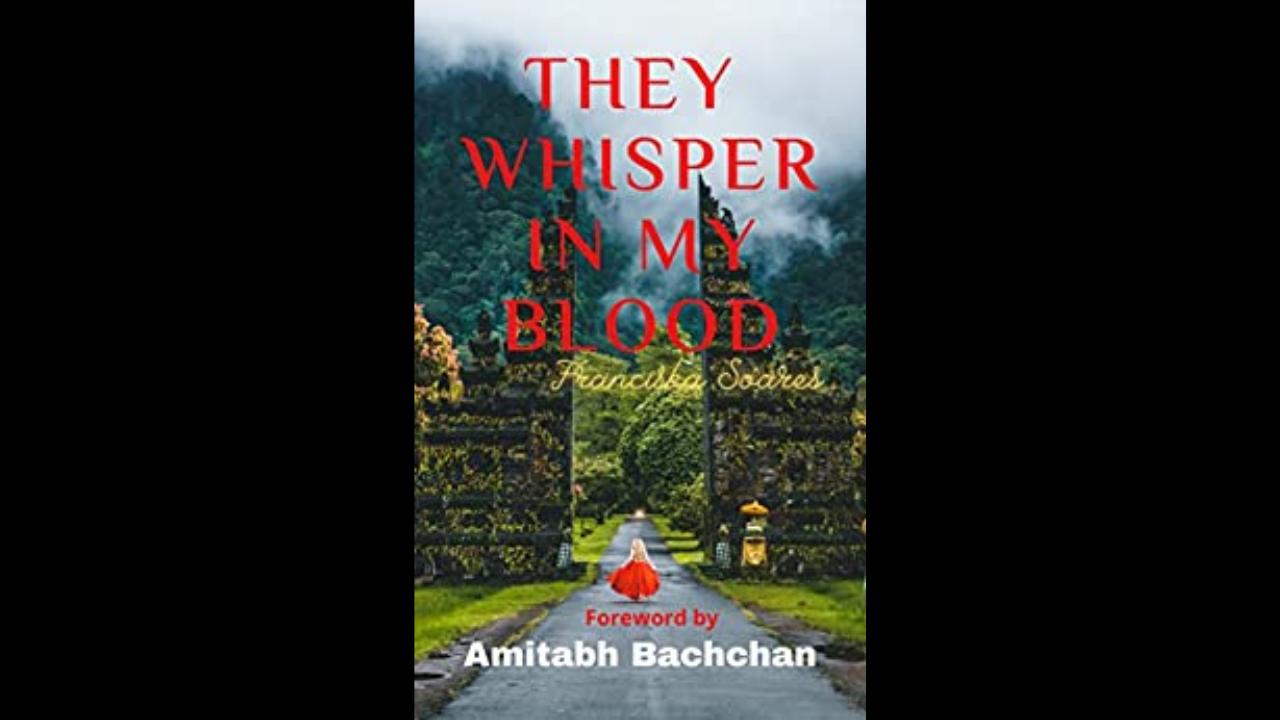A debut title by Franciska Soares empathetically probes the multi-layered scenarios that can cause conflict when it comes to dual ethnicities set across diverse backdrops. Excerpts from an interview with the author

Mid-day file pic.
What was going through your mind as you reached the end of writing your book, They Whisper In My Blood?
ADVERTISEMENT
When I decided to dive into the writing of this novel, a long-nurtured goal, I had this image in my mind of a writer: someone sitting solitary in a dark studio, sipping on absinthe, with a pet unicorn for company and an invisible muse perched on her shoulder pouring passion into diamond-encrusted prose. Lo and behold, my muse did make an appearance, even took over the whole creative process, fleshing out my story with characters that had hitherto existed only as shadows. What I had envisaged as a battle-royale within an arena that had me and my keyboard wrestling with legacy and permanency, even mortality, turned out to be one of the most enjoyable processes I have ever experienced. That’s what went through my mind when I typed the final period. And, this: I’d love to do this again!
Could you share with our readers about the background research that you needed to write this book?
If my novel has to slot into any one ‘genre’, it would be historical fiction, (though I’d like to think literary fiction is a better fit). History and fiction: can one be free of the other? I did extensive research to pepper my novel with factual information, about the Portuguese colonisation of India and more importantly, the Devadasi tradition. But what is history? It can be just one damn thing after another where ‘truth’ and ‘accuracy’ are not always the most comfortable of bedfellows. Hence, I’ve taken the artistic licence afforded a writer to place ‘real’ people gestated within hand-me-down family stories, in a fictional narrative, with deeds and doings that probably, and plausibly, happened – what someone I came across recently, has termed, rather grandiosely as fictional revivification.
How did Rodrigo's character come into being? And did you have to shape-shift it at any point?
How does one dare to conjure up a character one has never met? Rodrigo is the quintessential Romeo Montague saddled with the handicap of a confusing ethnicity – foreign and desi. I started out basing his character on a real-life person, striving all the while to maintain emotional distance, to preserve the pristine moments of Rodrigo’s unique story, moments that speak to his life in a different reality. I didn’t want a contemporary real-life person to swamp the fictional Rodrigo.
I love the second-half of your question. I think it’s the reader who will be doing most of the shape-shifting and my Rodrigo will be very different from my readers’, as the story mutates and comes alive in their imaginations.
What is the larger goal of writing such community-driven literature?
It’s been said that fiction comforts the disturbed and disturbs the comfortable. If the truth of this wise old saw persists it’s because literature still has the potential to stir up the dark, the uneasy. And that’s where its unique worth is positioned.
This novel has been written from a position of respect for the community. But also, for memory. For those people pressed into the margins and persevere though they’ve lost their underpinnings.
I do not profess to be a journalist or even a sociologist but writing is my way of saying: I know what you did; because it’s been chronicled deep in my psyche. The rebuffs, the rejections, the history – all of it needs to surface somewhere. So, though writing began as a private act between myself and the tools of my trade – words, stories – my novel is literature as an act of communal engagement.
Will you have a sequel to this book?
Yes, and no. My second novel: A Smatter of Minutes will be published early next year and though it is not a sequel in the literal sense of the term – it doesn’t have the same characters – it continues to be community-driven.
I am because you, my readers, are. Hence, if you say you’d like a sequel, I’ll be only too happy to acquiesce.
LOG ON TO amazon.com
Also read:
Let’s vibe to the beat of Mumbai's beatboxers at the Great Indian Beatbox Festival
 Subscribe today by clicking the link and stay updated with the latest news!" Click here!
Subscribe today by clicking the link and stay updated with the latest news!" Click here!








